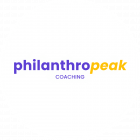⏱️ 10 min read | 1991 words
📋 In This Article
It’s about carving your own path, using your unique brain wiring as an undeniable advantage.
Too often, sales advice feels generic. It’s built for a neurotypical brain.
That rigid structure can lead to frustration, burnout, and thinking you’re not cut out for it.
But what if everything you’ve heard about ‘distraction’ or ‘disorganisation’ in ADHD actually holds the keys to extraordinary sales success?
Introduction: Redefining Sales Success with ADHD
I’m Errin, and I help neurodivergent entrepreneurs, creatives, and business owners build sustainable businesses.
I see firsthand the immense potential of an ADHD brain, especially in dynamic fields like sales.
The traditional sales environment, with its repetitive tasks and constant pressure, can feel like trying to run a race with your shoelaces tied.
But it doesn’t have to be that way.
We’re going to redefine what success looks like for you.
Understanding ADHD in Sales: Common Challenges & Unique Opportunities
Let’s be honest about the challenges. Executive dysfunction can make consistent follow-up feel like climbing Mount Everest.
Time blindness means deadlines can sneak up on you.
The constant stream of information can lead to overwhelm and decision paralysis.
These are real hurdles for any neurodivergent sales professional.
However, these very traits often come with powerful counterparts.
The ability to hyperfocus, for example, can lead to incredible deep dives into client needs.
The restless mind can generate creative, out-of-the-box solutions that neurotypical competitors miss.
Your sensitivity can translate into profound empathy and intuition, building stronger client bonds.
Shifting Perspective: Embracing ADHD as a Business Advantage
It’s time to stop fighting your brain and start collaborating with it.
Many successful sales professionals with ADHD, like hypothetical Alex Chen from London, have learned to leverage their unique processing style.
They don’t just ‘cope’ with ADHD; they actively harness it.
Imagine your ADHD as a superpower that just needs the right training manual.
This isn’t about overcoming a deficit.
It’s about optimising a different operating system.
It’s about embracing neurodiversity in business as a competitive edge, especially in a global market that values innovation and authenticity.
Leveraging Your ADHD Strengths for Sales Excellence
You have innate advantages waiting to be unleashed.
These aren’t weaknesses to be managed; they’re strengths to be amplified.
Harnessing Hyperfocus for Deep Client Engagement & Problem-Solving
When you’re genuinely interested, nothing stops you. That’s hyperfocus.
In sales, this means diving deep into a client’s business, understanding their pain points with incredible detail.
You can see connections others miss.
You can immerse yourself in product knowledge, becoming an undeniable expert.
Use this to your advantage during discovery calls, during proposal creation, or when problem-solving complex client scenarios.
Schedule dedicated, uninterrupted blocks for these high-interest tasks.
Don’t fight the tunnel vision; direct it.
Creativity & Adaptability: Crafting Unique Sales Approaches
Boredom is your enemy, but creativity is your friend.
Your ADHD brain is constantly generating new ideas, connections, and solutions.
This makes you incredibly adaptable.
Traditional sales scripts might feel stifling, but you excel at pivoting, innovating, and thinking on your feet.
Use this to craft unique sales approaches.
Don’t be afraid to experiment with different communication styles or presentation formats.
Your ability to see multiple angles allows you to tailor solutions perfectly to each client.
Embrace the unexpected; it’s where your best ideas often come from.
Building Authentic Rapport: Empathy, Intuition, and Genuine Connections
Many neurodivergent sales professionals possess heightened empathy and intuition.
You often pick up on subtle cues, unspoken needs, and emotional undertones that others might miss.
This allows you to build incredibly authentic rapport.
Clients don’t just buy products; they buy trust, connection, and understanding.
Your genuine curiosity and ability to deeply connect on a human level are powerful assets.
Focus on truly listening and understanding, rather than just waiting for your turn to speak.
This isn’t just a sales technique; it’s a natural strength for many with ADHD.
Building Neurodivergent-Friendly Sales Systems & Structures
“Systems” might sound like a dirty word to some with ADHD, conjuring images of rigid, boring routines.
But the right systems aren’t restrictive; they’re liberating.
They create a safety net for your executive functions, allowing your strengths to shine without the common pitfalls.
If you’re ready to build systems that actually work with your brain, not against it, the ADHD Business Compass™ can help you map your path to sustainable growth.
Streamlining Workflows with ADHD-Optimized Tools & Technology
Forget generic CRM systems that feel clunky and overwhelming.
We need ADHD-optimized CRM systems.
Think visual, intuitive, and easy to update.
Productivity apps like Notion or ClickUp can be tailored to create a visual representation of your pipeline and tasks.
Automate repetitive tasks wherever possible.
Use templates for emails, proposals, and follow-ups to reduce decision fatigue.
The goal is to minimise friction and maximise flow, so you can spend more time doing what you do best: selling and connecting.
Mastering Time & Task Management: Beyond Traditional Methods
Traditional time management advice often falls flat for ADHD brains.
Forget the Pomodoro Technique if it doesn’t work for you.
Explore “time blocking” that includes buffer periods, “body doubling,” or “interest-based scheduling.”
Use visual calendars and reminders that grab your attention.
Break down large tasks into tiny, manageable “micro-tasks” to overcome initiation paralysis.
Prioritise ruthlessly using systems like the Urgent/Important Matrix, or simply by asking: “What’s the absolute next physical action?”
This focus on executive function strategies is crucial for consistent sales productivity hacks.
Creating Predictable Pipelines: Structure for Consistent Follow-Up
Inconsistent follow-up is a silent killer in sales.
It’s where many neurodivergent sales professionals struggle.
A predictable pipeline isn’t about being rigid; it’s about building robust sales systems that automate reminders and structure your outreach.
Set up automated reminders in your CRM for every follow-up touchpoint.
Use predefined sequences for different types of leads.
Schedule dedicated “follow-up blocks” in your calendar when you are most alert and focused.
This structure for consistent follow-up ensures no lead falls through the cracks, transforming chaos into a reliable, active pipeline management for ADHD success.
For more insights into creating supportive environments, explore resources from organisations like Neurodiversity in Business.
If you’re looking to implement these kinds of ADHD-friendly systems into your business, we can help you design them from the ground up.
Sustaining Sales Momentum & Preventing Burnout
The journey to learning how to succeed in sales with ADHD isn’t just about the initial sprint; it’s about the marathon. Sustaining momentum and preventing burnout are critical for long-term success. Your unique brain wiring means traditional advice on productivity and energy management might not cut it. We need strategies designed to support your natural rhythms and challenges, ensuring you can thrive without burning out.
Optimising Your Environment for Focus & Energy
Your physical and digital environment can be either your greatest ally or your biggest distraction. For ADHD brains, sensory input can be overwhelming, but also stimulating. Design your workspace to minimise distractions – think noise-cancelling headphones, a decluttered desk, and dedicated “deep work” zones. Visually break up your day with clear boundaries between tasks and breaks. Digitally, aggressive notification management is your best friend. Use tools that allow for customisable focus modes, ensuring that when you’re engaging with clients, you’re truly present.
Consider a standing desk for movement or fidget toys to channel restless energy. The goal is to create a dynamic environment that supports sustained attention, rather than fighting against your brain’s natural need for stimulation or quiet. Experiment to find what works best for your unique sensory profile and workflow.
Leveraging Accountability & Support Systems
External accountability can be a powerful force for ADHD brains. It provides the structure and motivation that internal executive functions sometimes struggle to maintain. Partner with an accountability buddy, join a mastermind group, or work with a coach who understands neurodiversity in business. Regularly scheduled check-ins can keep you on track with your sales goals and follow-up routines.
Don’t be afraid to lean on technology too. Schedule virtual co-working sessions or use apps designed for accountability. These support systems act as an external prefrontal cortex, helping you bridge the gap between intention and action. Remember, asking for help isn’t a weakness; it’s a smart strategy for anyone looking to truly succeed in sales with ADHD.
Embracing Self-Compassion & Celebrating Wins
Sales is a field filled with highs and lows, and for those with ADHD, the lows can feel particularly crushing due to Rejection Sensitive Dysphoria (RSD). Cultivate self-compassion. Understand that setbacks are part of the process, not reflections of your inherent worth. Give yourself grace when things don’t go to plan, and then pivot and learn.
Equally important is celebrating your wins, no matter how small. ADHD brains thrive on novelty and positive reinforcement. Acknowledging successful calls, completed follow-ups, or closed deals provides that crucial dopamine hit, reinforcing positive habits and building motivation. This practice is vital for maintaining resilience and preventing burnout, ensuring you stay energised and excited about your sales journey.
Frequently Asked Questions
How can I manage rejection sensitivity in sales with ADHD?
Rejection Sensitive Dysphoria (RSD) is common with ADHD. In sales, it can be tough. The key is to reframe rejection as data, not personal failure. Focus on learning from each ‘no’ and celebrate your efforts. Practise mindfulness to observe the feeling without letting it overwhelm you. Build a strong support network and remind yourself of past successes to counteract negative self-talk. This mindful approach helps you build resilience to truly succeed in sales with ADHD.
What’s the best way to handle follow-ups if I struggle with consistency?
Consistent follow-up is crucial in sales, and a common challenge for ADHD. Automate reminders in your CRM or project management tool for every follow-up touchpoint. Create templates to reduce initiation friction. Schedule specific “follow-up blocks” in your calendar, ideally during your peak focus times. Consider “body doubling” with a colleague or friend during these blocks. These robust systems are essential to maintain momentum and avoid leads falling through the cracks.
Can ADHD medication help me succeed in sales?
For many, ADHD medication can be a valuable tool, helping to improve focus, reduce impulsivity, and manage executive functions. While it’s not a magic bullet, it can create a baseline of stability that makes it easier to implement the strategies mentioned above and learn how to succeed in sales with ADHD. Discuss options with a healthcare professional to see if medication is right for you as part of a comprehensive management plan that includes coaching and tailored systems.
How do I avoid burnout as an ADHD sales professional?
Burnout is a real risk. Proactive strategies include protecting your energy by scheduling regular breaks, hyperfocusing on high-interest tasks, and delegating or automating anything repetitive or boring. Set clear boundaries between work and personal life. Prioritise sleep, nutrition, and movement. Regularly review your workload and don’t be afraid to say no to new commitments if you’re feeling overwhelmed. Self-compassion and celebrating small wins also play a huge role in sustained performance.
Final Thoughts
Embracing your ADHD in sales isn’t about fitting in; it’s about standing out. Your unique brain wiring offers unparalleled strengths: hyperfocus for deep client understanding, boundless creativity for innovative approaches, and genuine empathy for building lasting relationships. By building neurodivergent-friendly systems and cultivating self-compassion, you can transform perceived challenges into powerful advantages.
Ready to transform your ADHD into your greatest business asset? The ADHD Business Compass™ will help you build systems that work with your brain, not against it. Discover how to succeed in sales with ADHD.



Comments are closed.